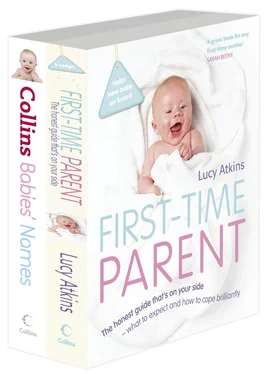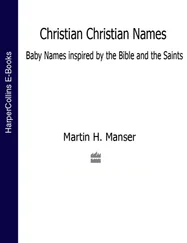Bella, Belle see Annabel, Arabella, Isabel
Ben see Benjamin
Benedict m.
From the Latin benedictus, meaning ‘blessed’, and most familiar as the name of St Benedict, founder of the Benedictine Order. It was common in medieval England in the forms Bennet and Benedick. The latter is the name of a character in Shakespeare’s Much Ado About Nothing. There are feminine forms Benedicta and Benedetta, and a Spanish-American form Benita.
Benjamin m.
From the Hebrew, meaning ‘son of the south’ or ‘right hand’, which might imply strength and good fortune. The Old Testament story of Benjamin, son of Jacob, gave the name the added implications of a favoured youngest son. The commonest pet forms are Ben, Bennie, Benny, Benjie and Benjy. It is currently a very popular name.
Bennet see Benedict
Berenice f.
From the Greek Pherenice, meaning ‘bringer of victory’. It was spread by the imperial conquests of Alexander the Great over Europe and Asia. It was especially popular in Egypt, during the period of Macedonian rule, and its use spread also to the family of Herod of Judea. Bernice is a modern form of the name, and Bunny is sometimes used as a pet form (see also VERONICA).
Bernadette f.
The commonest female form of BERNARD. Its use has spread due to the fame of St Bernadette of Lourdes, who lived in the mid 19th century and whose visions started the pilgrimages of healing to that town. The Italian Bernardetta has been shortened to Detta, which can be used as an independent name. Bernadine is another form of the name, and Bernie the short form.
Bernard m.
A Germanic name meaning ‘brave as a bear’. It was very popular in the Middle Ages. Two important saints bearing the name were St Bernard of Menthon after whom St Bernard dogs are named, and St Bernard of Clairvaux who inspired the Second Crusade. It has remained in use ever since. The most usual short forms are Bernie and Barney, which is shared with BARNABAS.
Berry see Apple, Bertram
Bert, Bertie m.
A pet form of a large number of names including ALBERT, BERTRAM, BERTRAND, GILBERT, HERBERT, HUBERT, ROBERT. In all these cases, the ‘-bert’ part of the name is a Germanic element meaning ‘bright’. The name is sometimes used as a given name, when it may take the form Burt.
Bertha f.
From the Old German word beraht, meaning ‘bright’. The first famous English Bertha was the wife of King Ethelbert of Kent who welcomed St Augustine to England on his mission of conversion. In the Middle Ages both Bertha and Berta were popular, and the name has been regularly used ever since, although it is rather uncommon at present.
Bertram m.
From the Old German meaning ‘bright raven’, the bird associated with the god Odin. The name has been used in England since the early Middle Ages, and has the short forms BERT and Bertie, and the less common Berry. Bertrand, meaning ‘bright shield’, is often treated as the French form of Bertram and shares with it the short forms BERT and Bertie.
Beryl f.
From the gemstone, whose name is related to the Arabic for ‘crystal’. It appeared in the 19th century, and was popular in the early part of the 20th century.
Bess, Bessie, Beth see Elizabeth
Betha see Bethia
Bethany f.
A popular name taken from a New Testament place name, the village where Lazarus lived. The short form Bethan is used independently, and is also a short form of ELIZABETH which has spread from Wales.
Bethia f.
Bethia or Bethea can be interpreted in three different ways. It can be thought of as a pet form of ELIZABETH, as a use of the Old Testament place name Bethia, or as an English version of a Gaelic name also found as Betha, meaning ‘life’.
Betsy, Bettina, Betty see Elizabeth
Bettrys see Beatrice
Beverl(e)y f. and m.
From an Old English surname meaning ‘of the beaver-meadow’. It is shortened to Bev, and is now only rarely used for boys.
Bevis m.
This is a French name, possibly meaning ‘bow’, introduced into England at the Norman Conquest. It was popular in the Middle Ages and revived again after Richard Jeffries’ Bevis, The Story of a Boy was published in 1882.
Bharat m.
This was the name of several famous heroes in the Hindu epics, and derives from the Sanskrit for ‘being maintained’. India officially became Bharat when it achieved independence.
Bharati f.
A Hindu name identified with the goddess of speech and learning.
Bhaskar m.
A Hindu name from the Sanskrit for ‘the sun’. Bhaskara, the famous 12th-century Indian astronomer and teacher, shows an earlier form of the name.
Bhavana see Bhavna
Bhavini f.
A Hindu name meaning ‘illustrious, beautiful’, a term for the goddess Parvati, wife of the god Siva.
Bhavna f.
An Indian name, from the Sanskrit meaning ‘wish’, ‘desire’ or ‘thought’. The form Bhavana is also used.
Bianca see Blanche
Bidelia, Biddy see Bridget
Bill see William
Billie, Billy f. and m.
This pet form of the boy’s name WILLIAM is being used increasingly as a girl’s name particularly in America, often in combinations to produce names such as Billie Jean or Billy Joe.
Birgitta see Bridget
Björn m.
A Scandinavian name which means ‘bear’. The name has become widely known in modern times through the Swedish tennis champion Björn Borg.
Blaise m.
From the French, meaning either someone from the Blois region, or derived from the Latin for ‘stammerer’. It is also spelt Blase or Blaze.
Blake f. and m.
A surname, from the Old English meaning ‘black, dark-complexioned’, used as a first name.
Blanche f.
This is a French name which was brought to England in the 13th century. It means ‘white’ or ‘fair-skinned’. The Spanish and Italian form Bianca was used by Shakespeare, and is now rather more popular than the older form.
Blodwen f.
From the Welsh for ‘white flower’. It is rarely found outside Wales. Blodeuwedd, ‘flower form’, is the name of a beautiful but unfaithful woman in Welsh medieval romance, while Blodyn or Blodeyn is the more simple ‘flower’.
Blossom see Fleur
Blue see Indigo
Bob see Robert
Bobbi(e), Bobby f. and m.
These pet forms of ROBERT, ROBERTA and BARBARA are used as names in their own right, and in combinations such as Bobby Joe.
Bonnie, Bonny f.
A Scots word for ‘pretty’ used as a name. Like many modern names, it probably owes its spread to its appearance in Gone with the Wind.
Boris m.
From the Russian word for ‘fight’. It was used in Britain and North America in the 20th century, possibly due to cultural influences such as Moussorgsky’s opera Boris Godunov, the film actor, Boris Karloff, and the author of Dr Zhivago, Boris Pasternak, as well the large number of Slavic immigrants who have come to the West.
Boyd m.
From a Gaelic word meaning ‘yellow’, referring to the colour of the hair. It is the name of a Scottish clan, though the surname can also derive from ‘isle of Bute’. Boyd became more widespread outside Scotland after its use in Margaret Mitchell’s Gone With the Wind.
Bradley m.
A surname from the Old English, meaning ‘wide meadow’, now popular as a first name. Brad(d) is a short form.
Brady m.
An Irish surname, possibly meaning ‘broad-chested’ now found as a first name.
Bram see Abraham
Bran see Brenna
Brand see Brenda
Brandan, Brandon see Brendan
Brandi f.
This name, which seems to come from the vocabulary word ‘brandy’, has been a popular girl’s name in the USA for some years. It is also found spelt Brandy, Brandee and Brandie, and probably serves as a feminine form of Brandon.
Читать дальше












